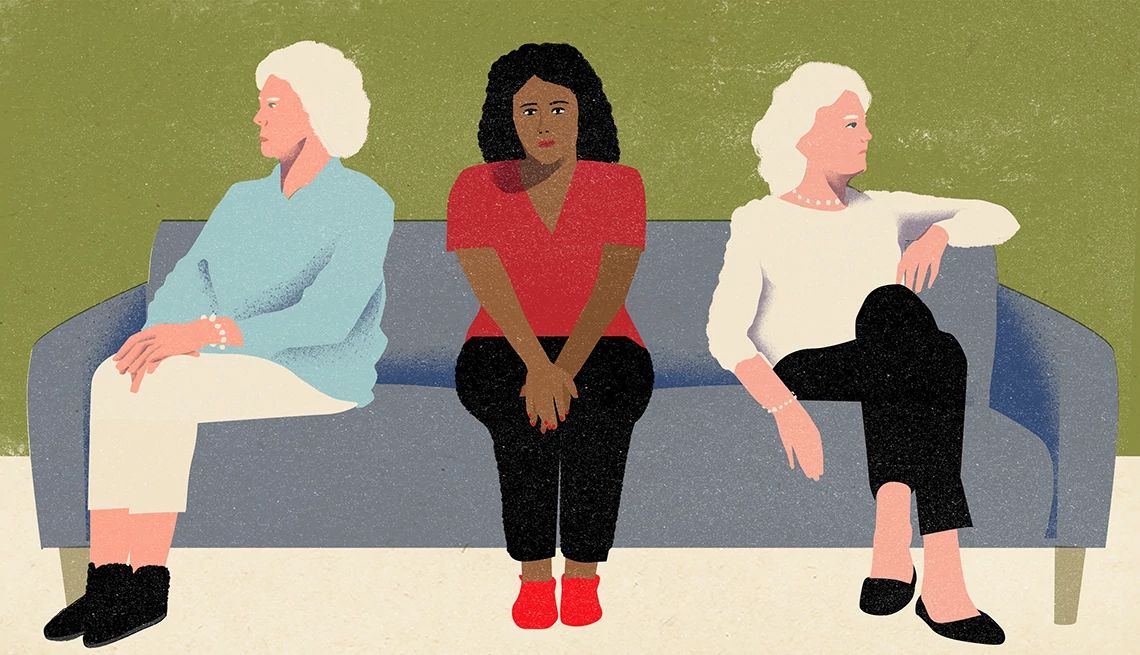
How to manage sibling relationships strained by caregiving
- Select a language for the TTS:
- UK English Female
- UK English Male
- US English Female
- US English Male
- Australian Female
- Australian Male
- Language selected: (auto detect) - EN
Play all audios:

He recommends convening one big family meeting moderated by a wise and respected neutral party, ideally with the parent there, but without them if they are incapacitated or uncooperative.
“You generally have one chance at this,” Blazer says. The mediator should allow family members to speak one at a time and then provide opportunities for others to respond. “What that does
is permits each family member to actually have to hear the other person before they’re jumping in and interrupting or making a statement about what should happen,” he explains. At the end of
the meeting, the mediator writes down and shares agreed upon decisions with all relevant family members. Blazer saw this approach work in his own family when an elderly, indecisive aunt was
allowing an unscrupulous nephew to live with her and he was “creating havoc.” The family came together and agreed that the best course of action was to move her into assisted living and
sell the house. Although she didn’t initially want to go, she acquiesced. “We were able, in that circumstance, to get her into assisted living, which got the nephew out of the picture.”
WORK TOWARD A COMMON GOAL Jennifer Weyenberg, a hospice chaplain at Providence St. Jude Medical Center in Fullerton, California, sometimes acts as a mediator for families in conflict. She
recalls walking into a hospital room to find two siblings screaming at each other. Because they had been raised to be “good Christian kids,” they stopped arguing when she, the pastor,
entered the room. “I said, ‘Let’s sit.’ So they each sat on one end of the couch and I sat in the middle, and I said, ‘I’m going to ask you a question, and I’m going to look at one of you
and the other one isn’t going to speak until I look at you. And it sounds like very first grade conversation skills, but, you know, you’re in a heated moment, right?’” She asked the more
agitated sibling what they were afraid of, because she says fear drives a lot of this kind of sibling conflict. “It turned out that the answer really was they were afraid that without mom,
the relationship they had with the rest of the family would disappear and they would be left alone.” She was able to guide these siblings through a short conversation about past grievances,
allowing them to find enough resolution to focus on their parent’s care. “They never actually said the words,’ I’m sorry,’" Weyenberg says, but “there was a lot of I’m sorry felt
throughout the conversation.” Things don’t always end harmoniously, notes Weyenberg. In another instance, a parent was no longer alert or able to express their wishes and the siblings were
unable to agree on a course of action. She advised the child who held power of attorney to make sure each family member had a copy of the will and recommended that they take turns visiting
their parent. Then she said, “You know, it does mean that somebody may not be here when she goes, right?” Weyenberg tries to help family members recognize that their goals are ultimately
aligned to ensure that their parent receives the very best love and care and reminds them that end-of-life care, or comfort care, is not killing a person but making the dying process more
comfortable for their loved one. She also encourages them to respect the parent’s preferences in terms of who gets to make decisions. “Optimal care is really what people want and that may
look different from family to family,” Gilligan says.
